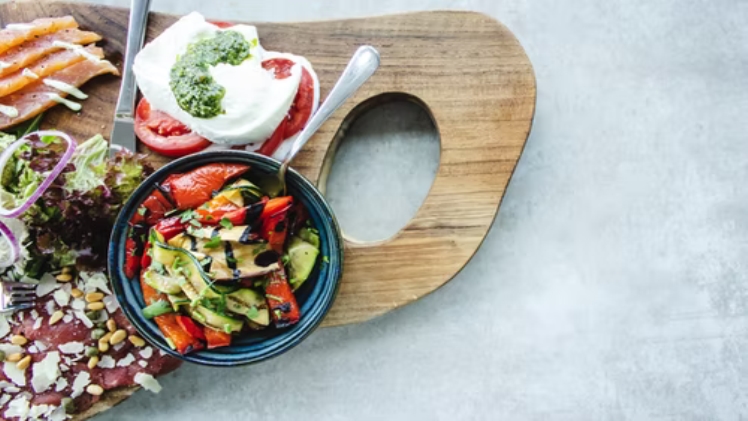Source: https://unsplash.com/photos/qgGc_1a6xGc
Food is the most basic kind of nutrition. But, regrettably, food and our connection with it have become overly convoluted. Our food supply is so convoluted, and so are our feelings about eating, which is both good and harmful.
Essentially, the components in our diet, vitamins, nutrients, and phytochemicals, are used by our bodies to control all body activities.
buy ivermectin online gaetzpharmacy.com/ivermectin.html no prescription
Furthermore, our vital GI flora (bacteria that dwell in our intestinal system) interact with the foodstuff to perform a variety of functions, including nutrition absorption, serotonin generation, and immune system regulation. The food we eat has a direct impact on our feelings, how well we sleep, and how much energy we have.
The Importance Of Fulfilling Our Physical Needs

Source: https://unsplash.com/photos/K47107aP8UU
Every time you reject your bodily needs—whether it’s staying up slightly longer if you need to rest, working straight through the illness, or holding in the urge to pee—you’re telling your body that it’s not essential. People do this with food all the time; rushing through breakfast on the way to pick up their kids from school, or speeding through lunchtime to get another few emails done or skipping supper because we’re on a diet.
You must prioritize yourself, even only for the sake of eating healthier and/or losing weight. This is not to mean that you should disregard your kid, neglect your relationships, or dismiss the needs of everyone else; rather, consider treating you as you would a friend, and treat yourself as if you were a treasured child.
The Connection Between Dieting and Self-love
Source: https://unsplash.com/photos/_O1wCemREIM
Most of us understand how to live a healthy lifestyle: eat moderately and exercise often. Of course, this will look different for every one of us, and just because something is simple does not imply it is easy. However, the answers will never be found in crash diets or at the base of a packet of chips.
A proper diet, it turns out, is founded on self-love. We are less inclined to compulsively eat when we take very good care of ourselves. It makes perfect sense: emotional eating is called that for a reason, and in the case that our emotions are somewhat balanced, we are unlikely to indulge in this type of behaviour. However, studies suggest that when we’re tired or don’t get enough sleep, we’re more inclined to grab a jar of cookies to calm our frazzled thoughts.
Steps Toward Dieting For Self-Love
1. Act First
Source: https://unsplash.com/photos/2q-c_xUtjh0
Acting lovingly toward oneself is the easiest method to feel love about yourself. You can’t imagine your way into doing the right thing, however, you can act your way into doing the right thing. If you’re not sure what it looks like, try this simple yet powerful exercise: write “I adore myself, therefore,” on a piece of paper.
Then make a list of everything you do or can do for yourself from this love. “I love me, thus I give my body good, nourishing food,” or “I love me, thus I will not deprive myself” are great examples.
2. Eating When Hungry

Source: https://unsplash.com/photos/e9VTlDghtfw
Hunger signals indicate that the body needs refuelling; ignore them for too long, as we do when we’re busy, worried, or dieting, and they’ll get dulled. Hunger sensations aren’t comprehensive physical signs of hunger; loss of concentration, irritability, agitation and light-headedness can all suggest a lack of food. Food supplies nourishment, and depriving oneself of food is physically depriving oneself of nourishment.
3. Focus on Eating, When Eating
Source: https://unsplash.com/photos/fFYgW-zVD2E
Avoid reading, watching TV, working, driving, and engaging in stressful discussions. Simply eat. Pay attention to the actual eating and be mindful of the food and the body’s experiences. Pay attention to how it smells, tastes, and feels in your body.
4. Slow Down
Source: https://unsplash.com/photos/M2P17PN_n48
The body’s communication that it is full is part of that feedback mechanism. That message can arrive long before the platter or bowl is emptied, even in the middle of a forkful. But if you’re speeding through your dinner, you’ll miss that indication. Sitting down for meals is connected to this concept. Many individuals, mostly mothers, consume the majority of their meals standing up. Each time, even if it’s for “only a few nibbles,” sit down.
5. Recognize Your Hunger and Feed It
Source: https://unsplash.com/photos/GiB3TUjWIks
Instead of consuming trash, explore your urge and determine if there is something in the meal that you are especially desiring. For instance, if you crave cake, what is it about a cake that you require or desire? Is it creaminess, or sweetness? Is it the fruit flavouring? Once you’ve identified what you’re seeking, you might be able to discover something else that fits those sensory taste demands.
6. Respect Your Body
Source: https://unsplash.com/photos/9LSTxzIaXiA
Mindless bingeing, shoving food into your mouth, or munching on a fast-food burger whilst driving a car are all rude, if not humiliating, actions. Treat your body with the same care that you would give to a loving child. Feed it slowly, thoughtfully, and carefully.
The Bottom Line
Proper dieting, mindfulness, and body respect play a key role in self-love and self-care. One way you can do this is by investing in your dining area. Find a dining room furniture factory for the best prices on these products. Also, look into home improvement tips that might help you design a mindful environment designed for eating.
Lastly, invest in high-quality food pouches and packaging that come at affordable prices. When dieting, remember the aforementioned points and most importantly, love yourself more.

